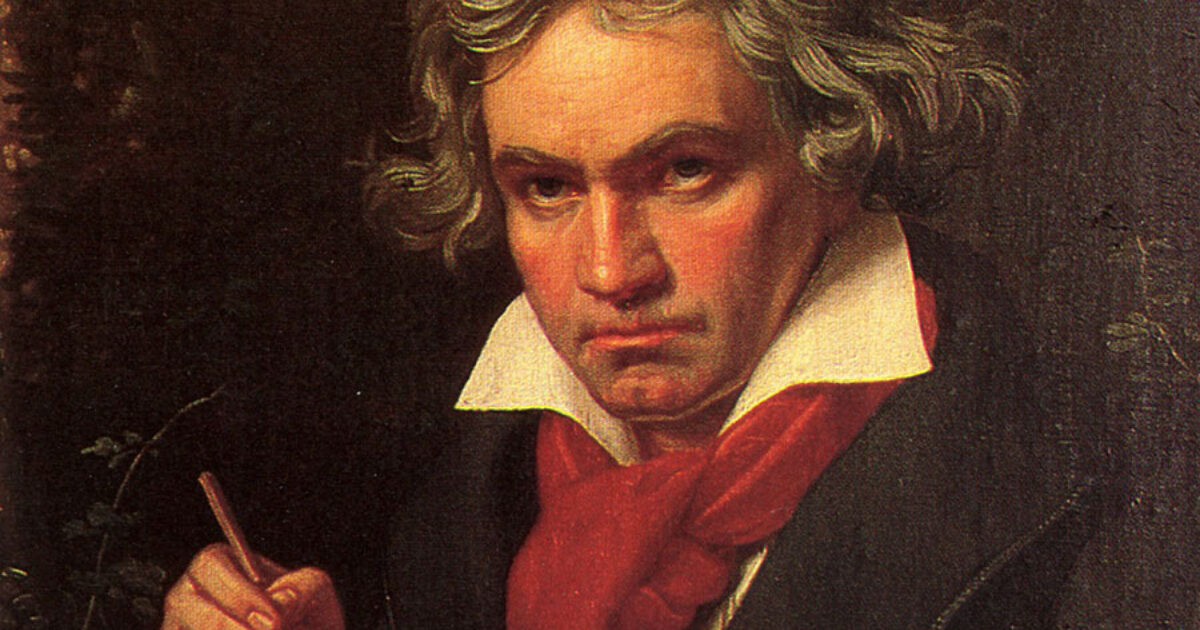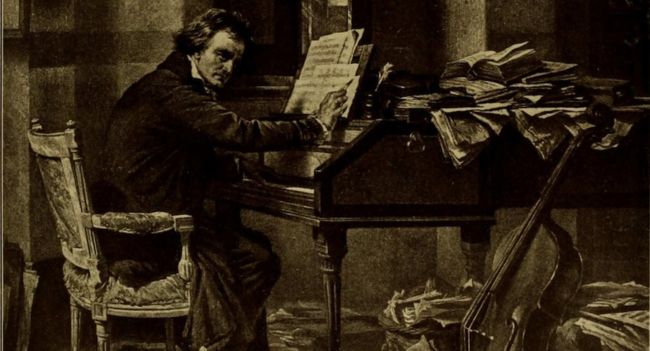Ludwig van Beethoven, the composer of classical music, was completely deaf due to hearing loss. He could still, however, create musical marvels. This is how it’s done.
What caused Beethoven’s deafness?
Beethoven, who was thirty years old, wrote to a friend, “Over the last three years, my hearing has grown steadily weaker.”
Since Mozart, the young Beethoven was regarded as the most significant musician. He had studied with Haydn and was hailed as a bright, virtuoso pianist by his mid-20s.
He wrote his first symphony, six string quartets, and a few piano concertos by the time he was thirty. The young musician appeared to have a bright future ahead of them, filled with opportunities for success and longevity.
Everything was about to change as he began to hear a buzzing sound in his ears.
Ludwig van Beethoven, a German composer
What was Beethoven’s age when he began to have hearing loss?
Beethoven started to experience that buzzing and ringing in his ears when he was about 26 years old. He had been suffering for some time when, at the age of 30, he wrote from Vienna to a childhood friend who was then employed as a doctor in Bonn, stating that his hearing had been gradually getting weaker over the previous three years. If I tell you that, in a theater, I have to stand right next to the orchestra to comprehend the performers, and that, from a distance, I am unable to hear the high notes of the instruments or the singers’ voices, then you will have some notion of this unusual deafness.
I also occasionally hardly hear soft-spoken persons. The words are not true, but the sound I can hear is. And yet, I can’t take it if someone yells.
Beethoven made an effort to conceal the issue from those closest to him. He was afraid that if anyone found out, it would ruin his career.
He added, “I have avoided almost all social gatherings for the past two years because I find it impossible to tell people that I am deaf.” It might be simpler if I worked in a different profession, but for me, this is a terrifying situation.
Beethoven once saw a shepherd playing a pipe while strolling across the countryside with fellow composer Ferdinand Ries. Beethoven couldn’t hear the wonderful music, but he could tell by the look on Ries’s face that it was playing. Beethoven is reported to have never been the same after this occurrence because it was the first time he had faced his deafness.
Up until 1812, Beethoven could reportedly still hear some speech and music. But by the time he was 44 years old, he was virtually completely deaf and could not hear voices or a lot of the noises of his beloved rural surroundings. For him, that had to have been awful.
Why was Beethoven deafened?
It’s unclear what specifically caused his hearing loss. Theories include typhus, syphilis, lead poisoning, and even his practice of submerging his head in cold water to stay awake.He once said that when someone interrupted him at work in 1798, he lost his temper. He claimed that after falling, he awoke to discover that he was deaf. Other times, he attributed it to digestive issues.
He wrote, “I am often plagued with diarrhea, which produces great weakness, thus the source of this must be my belly, which as you know has always been terrible and has been getting worse.”
His dilated inner ear, which eventually developed lesions, was discovered during an autopsy performed after his death.
Beethoven’s well-known Symphony No. 5, composed in 1804, is heard here. Its well-known opening theme, which depicts his terrible worry that he might suffer from hearing loss for the rest of his life, is frequently described to as “fate knocking at the door.”
What kind of deafness treatment did Beethoven seek?
Beethoven’s gastrointestinal problems appeared to improve after taking a warm bath in Danube water, but his deafness worsened. “I feel better and stronger, but day or night, my ears never stop buzzing and singing.”One odd treatment he tried was applying wet bark bandages to his upper arms, letting them dry and forming blisters. This was only effective in keeping him away from his piano for two weeks; it did not cure his deafness.
He stopped trying to get his hearing treated after 1822. He experimented with a variety of hearing aids, including these particular hearing trumpets:
How could Beethoven compose music if he was deaf?
Beethoven spent the first thirty years of his life listening to and performing music, so he was familiar with the sounds of instruments and vocals as well as how they interacted. He could always hear his compositions in his head because his deafness was a gradual decline rather than an abrupt loss of hearing.
As Beethoven’s hearing deteriorated, his housekeepers said that he would sit at the piano, place a pencil in his mouth, and touch the other end to the instrument’s soundboard to feel the vibration of the note.

Has Beethoven’s deafness affected his compositions?
Indeed. When Beethoven was still able to hear the entire spectrum of frequencies in his early pieces, he used higher notes. He started using the lower notes he could hear more clearly as his hearing deteriorated. During this time, Mozart wrote six symphonies, his lone opera, Fidelio, and the Moonlight Sonata. Towards the end of his life, the high notes made a comeback in his compositions, suggesting that he was hearing the works materialize in his mind.
Did Beethoven give any more concerts?
Yes, he did. But in the end, his excessive hammering to get to the notes caused pianos to be destroyed.
“In forte passages the poor deaf man pounded on the keys until the strings jangled, and in piano he played so softly that whole groups of notes were omitted, so that the music was unintelligible unless one could look into the pianoforte part,” composer Louis Spohr wrote after witnessing Beethoven during a rehearsal for the Archduke Trio in 1814. I was incredibly devastated by such a cruel fate.
Beethoven insisted on conducting the world premiere of his colossal Choral Symphony on May 7, 1824. To work alongside the composer, the orchestra also employed Michael Umlauf as a conductor. Umlauf instructed the musicians to go with him and disregard Beethoven’s instructions.
Three years prior to the composer’s passing in March 1827, this performance took place.
Beethoven was unable to hear the thunderous acclaim that day for the symphony. According to legend, Carolina Unger, a young contralto, approached the maestro and turned him around to face the crowd, observing the enthusiastic applause for the truly outstanding music that resulted from his effort
